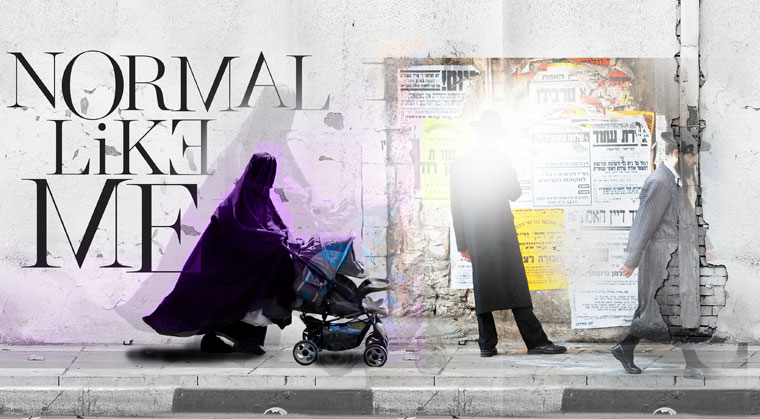Normal Like Me: Chapter 60


Grandpa ate his roasted fish with relish, stopping now and then to wipe his chin and ask when the bus was coming to take them home. Mami was playing like a little girl with all the enchanting items she’d found in the peddlers’ stalls: a flashlight, a watch, and a set of little forks.
Frank sat on the sand, happily thumbing through the T-shirts he’d bought for his children and nephews. “Any color you want, they have here,” he said. “Red, orange, blue…”
The shirts were third- or fourth-hand, and he’d bought them for pennies. “It would be a good idea to wash them in the river,” Bernadine warned him.
“Right, wash them.” Frank hadn’t bought anything for his wife yet. Tomorrow he would find a present for Mary.
Bernadine walked away from the family tent. She couldn’t bear to see Grandpa still groping his sightless way through life. The other tents were emptying out. Happy chatter surrounded them as the cured patients and their family members bundled up their belongings, preparing to go home. Those who lived in the region were going by PMV, the Australian military vehicles that could handle the rough dirt roads and were used locally as public transportation. Those who lived in the distant villages would have to wait for the Saturday night bus to Angoram, and from there they would continue their journey by motor canoe and ferry.
And only Grandpa Cargo would be going home with crocodile scales on his eyes.
Matthew, the head nurse, stopped Bernadine near the entrance. “Think you could take a shift in the hospital this evening?” he asked. “We need some help. You’ll be paid by the hour.”
She agreed readily. Anything to get away from all those exultant families on the beach and take her mind off her blind grandfather.
“Good.” Matthew spat out the chewed remains of a betel nut. “Go inside and look for Sandra. She’ll give you your instructions.”
Bernadine went in, found Sandra, and followed her instructions. Three hours later, she exited the hospital with trembling lips and a strange pallor wreathing her dark skin. Joe didn’t notice; he was preoccupied with his own stubborn thoughts.
“You know,” he said, “when I went to the airport with the doctors to see them off, I was imagining putting Grandpa on a plane to Melbourne or Sydney, and taking him to a hospital there…”
And who would pay for the flight, Bernadine wondered sadly, and snorted. As if they even needed to worry about that. If Grandpa had found all those excuses not to go into surgery in his own country, there was no way he’d ever agree to fly to a foreign country and have surgery there.
“I stood there in the hot, sticky terminal at the one check-in counter, translating the clerk’s Tok Pisin to English for the doctors. I must have sounded completely depleted. Dr. Fishman saw my miserable face, and like everyone else, he tried to console me.”
“What did he say?”
“He said that G-d is the only reality.”
“G-d?” Bernadine stared at Joe in surprise. Her grade-school teacher, the elderly nun Sister Sylvia, used to talk about G-d a lot. The version of G-d she presented was a lovable old man who lived somewhere in the sky and handed out gifts to His creatures here on earth, but would occasionally get fed up and shoot wrathful arrows down on them. What did He have to do with reality?
(Excerpted from Mishpacha, Issue 726)
Oops! We could not locate your form.



